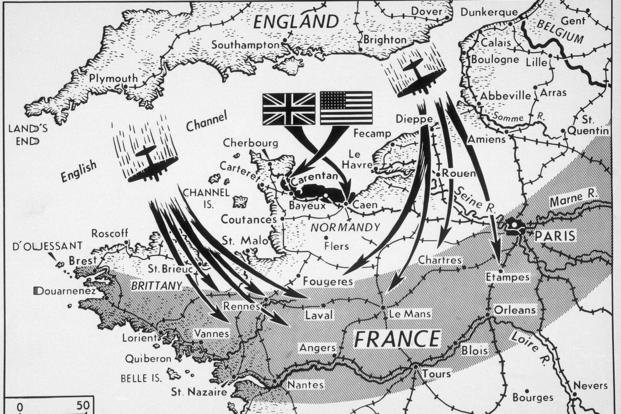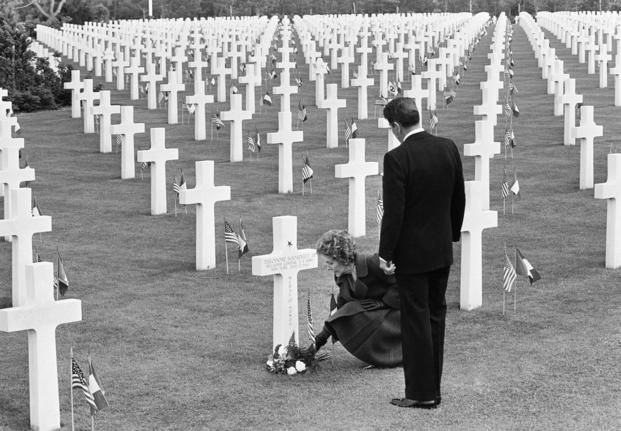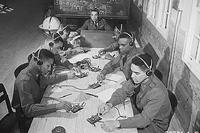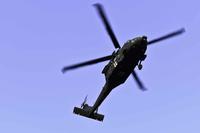The Allied invasion of Normandy, France, on June 6, 1944, was the largest amphibious invasion in history. The scale of the assault was unlike anything the world had seen before or will most likely ever see again.
By that summer, the Allies had managed to slow the forward march of the powerful German war machine. The invasion was an opportunity to begin driving the Nazis back.
The invasion is unquestionably one of the greatest undertakings in military history. By the numbers, here's what it took to pull this off.
Around 7 million tons of supplies, including 450,000 tons of ammunition, were brought into Britain from the U.S. in preparation for the invasion.

Source: The D-Day Center
War Planners Laying Out the Spearhead into Continental Europe Created Around 17 Million Maps to Support the Operation.

Source: US European Command
Training for D-Day was brutal and, in some cases, deadly. During a live-fire rehearsal exercise in late April 1944, German fast attack craft ambushed Allied forces, killing 749 American troops.

Source: NBC News
D-Day began just after midnight with Allied air operations. 11,590 Allied aircraft flew 14,674 sorties during the invasion, delivering airborne troops to drop points and bombing enemy positions.

Source: Seattle Times
15,500 American and 7,900 British airborne troops jumped into France behind enemy lines before Allied forces stormed the beaches.

Source: The New York Times
6,939 naval vessels, including 1,213 naval combat ships, 4,126 landing ships, 736 ancillary craft and 864 merchant vessels, manned by 195,700 sailors took part in the beach assault.

Source: Department of Defense
132,715 Allied troops, among which were 57,500 Americans and 75,215 British and Canadian forces, landed at five beaches in Normandy.

Source: Department of Defense
23,250 US troops fought their way ashore at Utah Beach as 34,250 additional American forces stormed Omaha Beach. 53,815 British troops battled their way onto Gold and Sword beaches while 21,400 Canadian troops took Juno Beach.

Source: The Telegraph
The US casualties for D-Day were 2,499 dead, 3,184 wounded, 1,928 missing and 26 captured. British forces suffered about 2,700 casualties while the Canadian troops had 946.

Source: The Telegraph
Total casualties for both sides in the Battle of Normandy (June 6-25, 1944) were approximately 425,000.

Source: Seattle Times
By the end of June 11 (D+5), 326,547 troops, 54,186 vehicles and 104,428 tons of supplies had been unloaded in France. By the end of the war, those figures would increase to 2.5 million men, 500,000 vehicles and 4 million tons of additional supplies.

Source: US European Command
More from Business Insider:
- 5 big surprises the Germans got on D-Day
- Famous celebrities and athletes who served on D-Day
- 3 unsung World War II female spies who helped make D-Day a victory
- 75th anniversary of D-Day invasion of Europe in World War II
Want to Know More About the Military?
Be sure to get the latest news about the U.S. military, as well as critical info about how to join and all the benefits of service. Subscribe to Military.com and receive customized updates delivered straight to your inbox.















